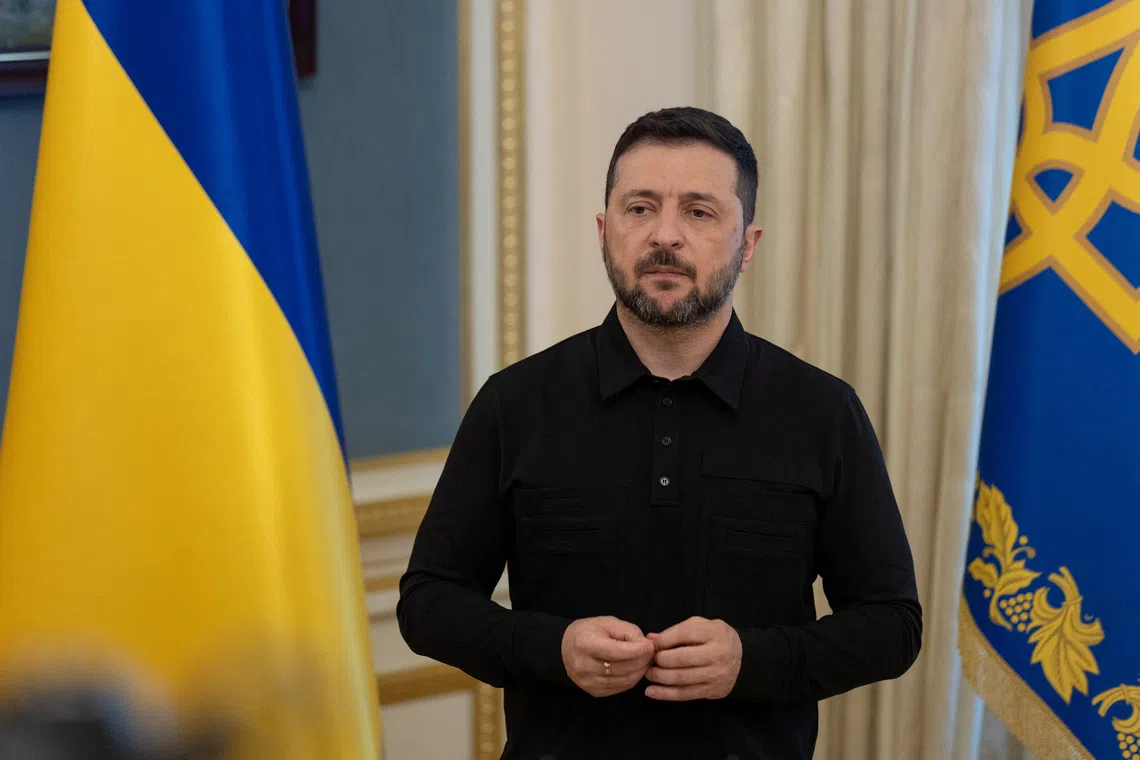Ukraine’s Zelensky proposes joint aerial shield with allies
Sign up now: Get ST's newsletters delivered to your inbox

Ukrainian President Volodymyr Zelensky said that Ukraine can counter all kinds of Russian drones and missiles.
PHOTO: REUTERS
WARSAW – Ukraine has offered to build a joint aerial defence shield with its allies to protect against threats from Russia, Ukrainian President Volodymyr Zelensky said on Sept 29, after a series of airspace incursions that caused alarm on Nato’s eastern flank.
Nato leaders have said that Russia has been testing the alliance’s readiness and resolve with airspace incursions in Poland and the Baltic states, and Kyiv says its experience in dealing with aerial threats would be valuable.
“Ukraine proposes to Poland and all our partners to build a joint fully reliable shield against Russian aerial threats,” he said in an address to the Warsaw Security Forum delivered via video link.
“This is possible. Ukraine can counter all kinds of Russian drones and missiles and if we act together in the region, we will have enough weapons and production capacity.”
Ukraine has already said that its troops and engineers will train their Polish counterparts on countering drones.
The topic of defence cooperation with Kyiv was high on the agenda as leaders gathered in Warsaw for the annual security forum.
German Defence Minister Boris Pistorius told the conference that “Europe’s and Ukraine’s defence industry must work together more closely and effectively”.
“The European Union must back this by providing a much more flexible regulatory framework for the defence industry in Europe.”
Following the Russian incursions into Nato airspace, countries on the alliance’s eastern flank have agreed on the need for a “drone wall” with advanced detection, tracking and interception capabilities.
However, Mr Pistorius warned that establishing this would not be a quick process.
“We’re not talking about a concept that will be realised within the next three or four years,” he said. “We need to prioritise, and recognise that we require more capabilities and capacities than previously described.” REUTERS


